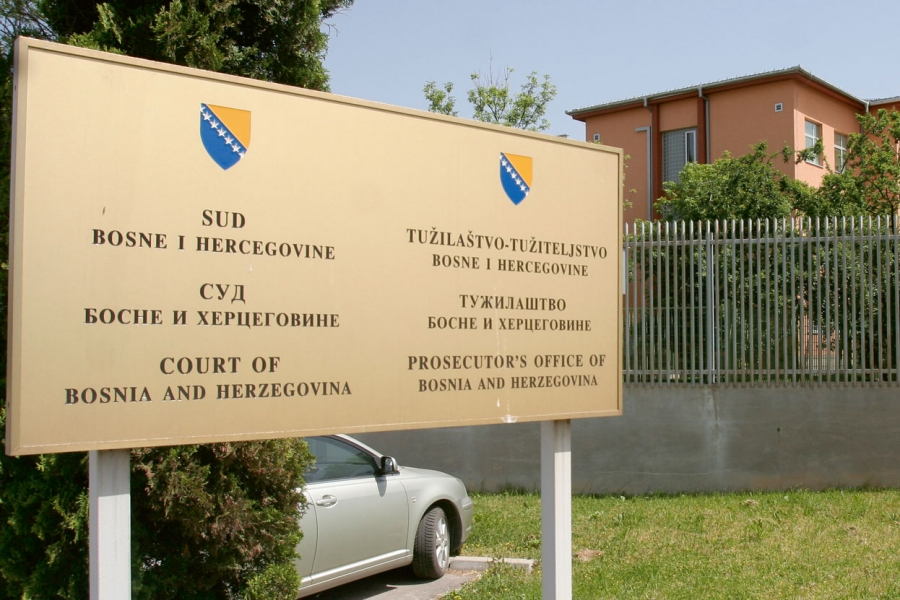The Constitution of BiH states that judges of the Constitutional Court “must be distinguished jurists of high moral standing,” which inherently includes integrity. Someone perceived as having “high moral standing,” especially a judge, is expected to behave and make decisions appropriately. Conversely, immoral judges cannot be expected to act or decide in an appropriate manner.
Full text:
From amoral individuals, we expect indifference to improper conduct. So, as I write this, I face a fundamental paradox: if the current Constitutional Court judges are truly high-minded jurists, this text is redundant, and their improper (unconstitutional) actions, which I address here, are mere errors. Conversely, if they aren’t such jurists, then this text is equally redundant, as my only means of alerting them to their improper actions is to appeal to their moral duty to act rightly (constitutionally). I am troubled by how morally indifferent we have all become; this affects how many of us will care about the actions of these judges.
Nevertheless, despite the paradox and uncertainty about public support for this protest against breaches of the BiH Constitution, this text must be written. For a country with a Constitution that states it is “a state that shall function in accordance with the rule of law” (Article I/2), it is intolerable that a diminished Constitutional Court has placed its own Rules above the Constitution and unacceptable for this breach to go unaddressed, especially now that we see a case where a judge continues to work after her mandate expired, contrary to the constitutional rule.
How can Rules override the Constitution?
Seada Palavrić should have left this institution on November 11, as required by the Constitution, as her mandate expired upon her reaching 70 years of age (Article VI/1.c). The fact that the diminished Constitutional Court prioritized a recent amendment to its Rules—saying a judge may remain until a successor is appointed—raises serious questions about the judges’ commitment to their oath to uphold the Constitution (Article VI/3). The Court, now comprising seven judges (three “foreign judges” selected by the European Court of Human Rights president and four “domestic judges” appointed by the Federation of BiH’s House of Representatives, but lacking judges selected by Republika Srpska’s National Assembly), is constitutionally mandated to have nine judges (Article VI/1). This requirement is as essential to the Court’s function as the two houses are to the Parliamentary Assembly’s operation.
Constitutional Court abuses—an ongoing story
This text does not intend to be naïve. The problems with the Constitutional Court and those responsible are well known and need to be openly addressed. For decades, political forces in Sarajevo have pressured the Court to use it as a tool to amend the Constitution and provoke Republika Srpska into abandoning the Dayton Agreement. Despite nearly thirty years of such tactics, Republika Srpska has resisted, maintaining that it upholds the Dayton Accords as a fundamental protector.
Who dictates the Constitutional Court’s decisions?
Since 2011, BiH has been trapped by a Constitutional Court decision (U-1/11) regarding state property, often referencing the Yugoslav succession agreement, which it turns out has never been published in the BiH Official Gazette. This fact raises the question of whether the judges have even read this foundational document. Shockingly, multiple decisions cite a non-existent issue of the Official Gazette as the source for the succession agreement, casting doubt on whether the Court has truly understood the document it claims to rely on.
Foreign judges—a part-time presence
The so-called “foreign judges” have never questioned why they are often excluded from decisions made in the Court’s “Grand Chamber” (previously the chamber of five judges). Logically, a court’s panels should include at least one judge from each of the three groups (those appointed by the European Court of Human Rights president, by the Federation’s House of Representatives, and by Republika Srpska’s National Assembly). Why these foreign judges accept being sidelined is unclear.
Unconstitutional decision-making as a rule
Foreign judges might tolerate being excluded from certain judicial duties, but why have they violated the BiH Constitution in cases where they did participate? For example, under the same legal principles, the Constitutional Court deemed January 9 unconstitutional but accepted March 1 as legitimate—despite its unconstitutional label as the “Day of Independence of the REPUBLIC of BiH,” something that, under the Dayton Constitution, no longer exists.
Foreign judges as mere beneficiaries
Foreign judges could have contributed to the growth and sovereignty of BiH by, for example, opposing the intentional mistranslation of the Constitution that alters the original meaning of judge selection in Article VI/1.d. But by staying silent, they reveal themselves as mere beneficiaries of their roles, not contributors to BiH’s progress.
Not all judges are the same
Not all judges are alike. When choosing Zlatko Knežević as a Constitutional Court judge, the Republika Srpska’s National Assembly evidently made a wise choice. Knežević resigned rather than participate in unconstitutional decisions made by a diminished Court, demonstrating a level of professionalism and integrity lacking in certain others.
From a Constitutional to an Unconstitutional Court of BiH?
Given these examples and numerous others, the remaining judges of the diminished Constitutional Court continue as if nothing unconstitutional is happening—as though they’re a properly constituted body. Perhaps it’s time to rename this institution the “Unconstitutional Court of BiH.” Not only are its decisions flawed from a constitutional standpoint, but they are also made by an unconstitutional “diminished” Court that is unlawfully exercising powers meant for a full, properly constituted Constitutional Court.
It’s time for these remaining judges to answer the question: will they resign or continue to disgrace themselves? Ultimately, what use is a Constitutional Court operating in an unconstitutional manner, applying mistranslated versions of the BiH Constitution, whose decisions are of uncertain origin, unenforced despite criminal consequences, and where judges like Seada Palavrić shamelessly ignore and trample the BiH Constitution in favor of Sarajevo’s anti-Dayton agenda?
Source: RTRS









